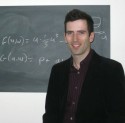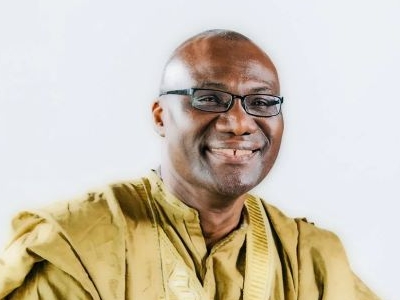The Faculty of Graduate and Postdoctoral Affairs is pleased to announce the winners of the Graduate Research and Innovative Thinking (GRIT) Award. The award acknowledges and supports outstanding senior PhD students conducting highly original and innovative research, with the expectation that they will make a significant impact in their respective field of study. Recipients will receive up to $5,000 which they will use for travel and related expenses to present their scholarly research at a top national or international conference.
The winners are:
 Julie Blais (Psychology)
Julie Blais (Psychology)
Washington for the Scientific Study of Psychopathy (SSSP) conference
“There has long been public fear and scrutiny surrounding the criminal justice system’s response to violent and sexual offenders. In Canada, legislation exists which permits judges to impose indeterminate sentences for those offenders deemed to be dangerous. My research aims to understand how these decisions are made and what role clinical diagnoses, such as psychopathy, play in judicial decision-making.”

Jason Crann (Mathematics)
Gothenburg, Sweden for the International Conference on Banach Algebras and Applications,
“I am researching manifestations of duality in harmonic analysis and their applications to quantum information theory. This new perspective allows, in particular, for a drastic simplification of quantum capacity calculations, which measure the amount of quantum information that can be reliably transmitted during a quantum computation. Such quantities are of paramount importance for our understanding of large scale quantum computing.”
 Danielle Fraser (Biology)
Danielle Fraser (Biology)
Barcelona for the International Congress of Vertebrate Morphology
“My research focuses on comparing the effects of past (millions of years) and present climate change on land mammals. The larger purpose of my research is to produce historical data that can be used to predict the long-term effects of human-mediated climate change because mammals are economically important animals (providing both food and clothing). The models that exist now are not useful for predicting long-term responses because they do not account for evolution. I hope that new models will ultimately help to inform conservation policy in Canada.”
 David Hudson (Business)
David Hudson (Business)
Natal, Brazil for the International Conference on Information Resources Management
“I am examining how employees of companies add value at work when they do things like bringing their own tools – personal iPads, smartphones, gmail, Facebook – to actually perform their jobs together with the tools the company has traditionally provided. Doing things like that is against the rules in many companies, but employees can simultaneously take greater control over what they do and provide tangible benefit to their companies too.”
 Francis Jeanson (Cognitive Science)
Francis Jeanson (Cognitive Science)
Amsterdam for the Genetic and Evolutionary Computation Conference
“I am trying to better understand the ‘circuits’ in our brains that are responsible for fundamental behaviours and cognitive abilities. In particular, I am looking at special types of brain circuits that depend on the timing that controls which neurons fire. It’s kind of like traffic lights. A co-ordinated timing system can make the whole thing work perfectly but, if a light is out of sync, watch out for those traffic jams. This kind of research is fundamental to understanding how parts of our brain work in everyday activities.”
 Reisa Klein (Communications)
Reisa Klein (Communications)
London, England for the International Communication Association Conference
“Operating from the starting point of beauty as a constructed category, my research focuses on the use of beauty as a political tool in the context of the Nazi Holocaust. It examines how beauty constructions were deployed as techniques of domination through the legitimation of the superiority of an Aryan master race and through the ‘othering’ of Jews. Furthermore, through interviews with Holocaust survivors, my paper sheds light on how beauty standards and practices offered some capacities for individual resistances by Jewish women who used their beauty as a ‘tactic’ to procure false papers, food or protection, thereby gaining some maneuverability within the oppressive regime. This research therefore offers a point of entry into overlooked gendered dimensions of the public memory of the Nazi Holocaust and particularly, Jewish women’s unique experiences wherein a mostly male-centric narrative has become ascendant.”
 Rengaraju Perumalraja (Systems and Computer Engineering)
Rengaraju Perumalraja (Systems and Computer Engineering)
Sardinia for the 9th IEEE International Wireless Communications and Mobile Computing Conference
“In multi-hop Fourth Generation (4G) wireless networks, the intermediate relay nodes may fail unexpectedly. If the relay node fails, the network will be not able to transmit packets to the receiving nodes and the network Quality of Service (QoS) will be significantly affected. The focus of my research is to protect the communications during relay node failure(s) using the network coding and wireless redundancy techniques. Hence, the network will still be able to deliver the messages correctly in case of relay failure(s) and maintain the network QoS requirements.”
 Stephanie Redden (Political Science)
Stephanie Redden (Political Science)
San Francisco for the International Studies Association (ISA) Annual Convention
“My research explores how everyday actions—in particular everyday forms of worker resistance—are gendered, and what impact those actions have on the global economy. Using John M. Hobson and Leonard Seabrooke’s (2007) ‘Everyday International Political Economy (EIPE)’ model as a starting point, I am working to construct an explicitly feminist ‘EIPE’ analytical framework. This framework will be employed in order to gain a better understanding of the relationships between gender, the everyday and the global economy. In particular, it will allow for a more nuanced understanding of how gendered everyday actions both constitute, as well as potentially disrupt, the global economy.”

Deanna Whelan (Psychology)
New Orleans for the Society of Personality and Social Psychology Conference
“I explore the concept of affective forecasting, people’s predictions about emotional reactions to future events. More specifically, I investigate the accuracy of predictions based on the personality trait of introversion-extraversion. Affective forecasting errors can lead to suboptimal decisions. To illustrate, imagine deciding not to go to a social event because you thought it would be stressful, and then having a great time after a friend dragged you there. The implications are in understanding, and potentially trying to change, the inaccuracy of our predictions which might ultimately make people happier.”




